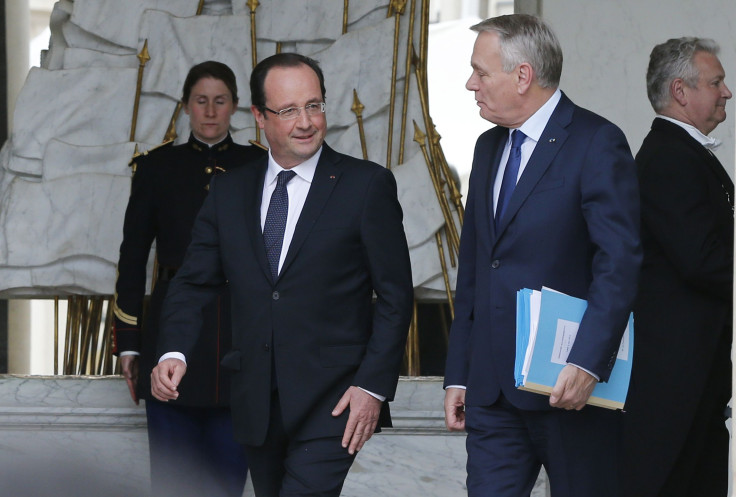France Cheers Extension Of Deficit Reduction Deadline, Calling It 'End Of Austerity,' But German Lawmakers Are Scoffing

The finance ministers and central bank chiefs of Germany and France are scheduled to meet Tuesday in Berlin to discuss the two countries’ roles in solving Europe’s economic crisis. This meeting will likely focus on the recent decision by the European Commission to extend to 2016 the time France has to hit a deficit reduction target of no more than 3 percent of gross domestic product.
France’s deficit is expected to be as high as 3.9 percent of its gross domestic product, rising to 4.2 percent under current conditions, according to the European Commission. German lawmakers are pushing back on extending this deadline to reel in spending even as the country’s own finance minister said the extension granted to France and other euro states was the right thing to do.
French Finance Minister Pierre Moscovici hailed the reprieve as “the end of the dogma of austerity” in a French-language interview with Europe 1 radio on Sunday.
German Federal Minister of Finance Wolfgang Schaeuble said in a speech in Hamburg on Tuesday that the extensions are OK so long as the effort to reel in spending through structural reforms continues, according to Bloomberg.
In an interview published on Sunday in the German daily Bild, Schaeuble said that whatever “flexibility” is given to meeting deficit reduction targets, Germany and the European Commission are in “complete agreement that there must not be any relaxing of [economic] reforms."
Some of the hardest-hit euro zone economies, including France, Spain, Italy and Greece, have been facing public backlashes and protests at unpopular spending and benefits cuts.
German Chancellor Angela Merkel is bidding for a third term in her country’s Sept. 22 elections, so she must walk a fine line between pleasing her constituency, many of whom see Germany carrying an undue burden in pushing the euro zone out of its straits. This is so even if, as reported late last month by Bertelsmann Stiftung, Germany has benefited economically from being a member of the currency bloc, even taking into consideration its potential losses from its euro rescue measures.
© Copyright IBTimes 2024. All rights reserved.












